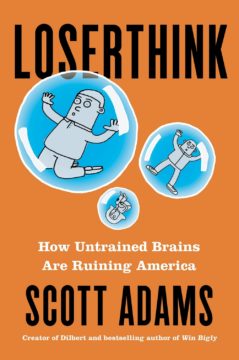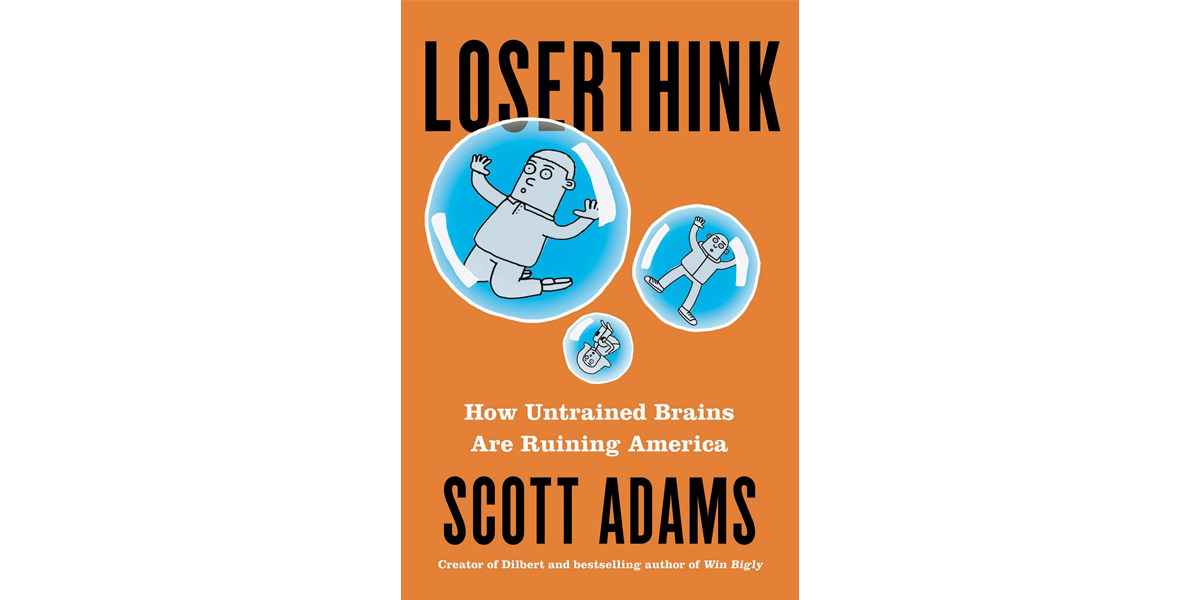I’m working on an article and accompanying video that asks the question, “Why isn’t public education getting cheaper?” The origin of the question comes from the observation that the digital age is causing the cost of acquiring information to go to zero. Yet, the costs of education have skyrocketed.
 But this article skips over that topic for now and moves straight to a vision of the future of education. It’s an excerpt from the book Loserthink: How Untrained Brains Are Ruining America by Scott Adams. It’s in a chapter titled The Golden Age Filter. While Adams focuses primarily on post-secondary education, I see no reason why this vision does not extend to the secondary level and even some parts of primary education.
But this article skips over that topic for now and moves straight to a vision of the future of education. It’s an excerpt from the book Loserthink: How Untrained Brains Are Ruining America by Scott Adams. It’s in a chapter titled The Golden Age Filter. While Adams focuses primarily on post-secondary education, I see no reason why this vision does not extend to the secondary level and even some parts of primary education.
But first, it may help to provide a little bit of context. What does “The Golden Age Filter” mean? Scott Adams spends a lot of time talking about how cognitive biases and distortions lead to unproductive thinking. One tool he recommends to help you identify these phenomena in your own thinking is the application of Thinking Filters.
As I have said in prior posts, I don’t believe our brains evolved to give us truth. Our brains evolved to create little movies in which we get to be the stars. And we can view our movies through many filters with no preference for which filter is the “right” one.
For example, Ted Cruz and Richard Dawkins believe totally different things about reality and yet both can use an ATM, shop at a store, and procreate. So your filter on reality need not be related to any actual underlying reality in order to keep you alive. It just has to NOT kill you.
There are many filters that explain the past. Even conspiracy theories fit the past. But filters are not equal when it comes to predicting the future.
And so in this chapter, he’s using the assumption that we are at the start of a golden age for mankind. Then he uses that as a filter to predict the future.
Here’s the excerpt:
Traditional education involves one instructor teaching a class of students who are in the same room. That’s en expensive model, and a bad one if you live in a place with poorly funded schools and no other options. Online learning is rapidly growing and is already cost-effective, but it is fairly primitive compared to where it is likely to evolve in a few years. Most online learning is limited to one teacher droning about a topic while the video camera is running. But eventually, and inevitably, you will see more of a Hollywood film model for online education, meaning teams of qualified people will get together to add their contributions to the product. The “teacher” might simply be a good presenter, similar to an actor. The course content might be the product of graphic artists, CGI artists, gifted writers and directors working together. Now add the tech industry’s ability to measure what gets the most clicks and who gets the highest test grades, and you have a way to continuously evolve to better and more effective forms of online teaching.
At the moment, online learning is inferior to a physical classroom experience for most subjects. But that gap will shrink rapidly, and eventually the online experience will be far superior, more widely available, and much less expensive than college. Someday we might see public schools replaced by online courses and augmented by social get-togethers for the students.
I recently bought a virtual reality (VR) system for entertainment and also to learn what is ahead for VR technology. In its current form, the content for VR is limited, and wearing the VR headset for several minutes can give users headaches and motion sickness. But as primitive as the technology is, it is already completely obvious that virtual experiences will eventually rival in-person experiences, and surpass them in many ways. This is especially important for online learning. If you can put yourself into the scene — let’s say, attending an historical event as a spectator, or assembling a virtual machine from virtual parts — your learning experience will be extraordinary compared to anything classroom can provide.
One VR title I used at home involved taking a tour inside the Hindenburg airship that was famously destroyed by a fire in 1937. I could walk through the control room, the crew’s quarters, the public spaces, and all the interior engineering spaces at my own pace. This was full-body learning, and I remember the inside of the Hindenburg as vividly as if I had been there in person.
Probably the biggest obstacle to nontraditional learning is the value of the degree or certification one gets when done. If you have a degree from a top college, employers know approximately what they are getting.But if you learned a variety of useful skills online, and there is no degree program involved, how would anyone know your value? I expect this to change over time as credible business leaders and companies start endorsing certain collections of online classes as being degree-equivalent.
Parents and educators will resist this transition, for sure. But it is unstoppable. The Internet fundamentally transformed the way news is gathered and reported, leading to a massive reallocation of resources in the news industry. The same is going to happen in education. Though many will try, it cannot be stopped.

